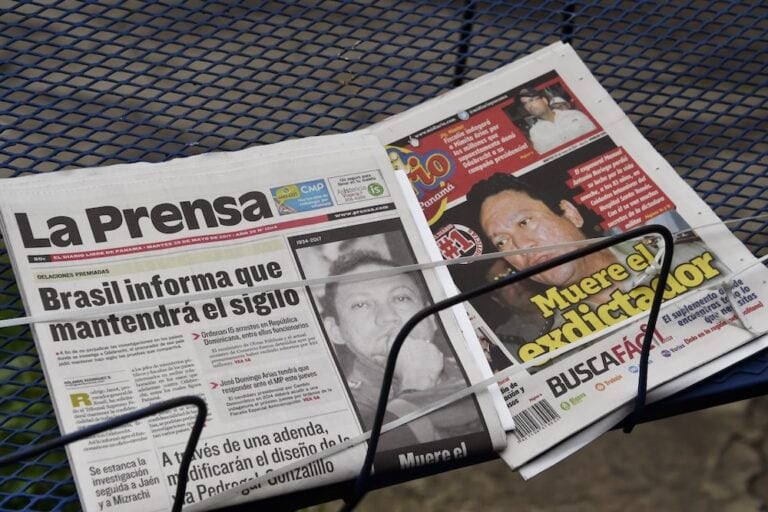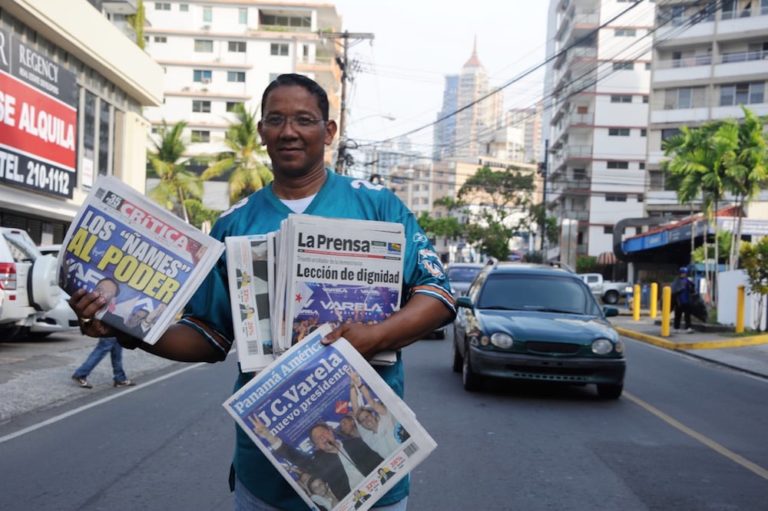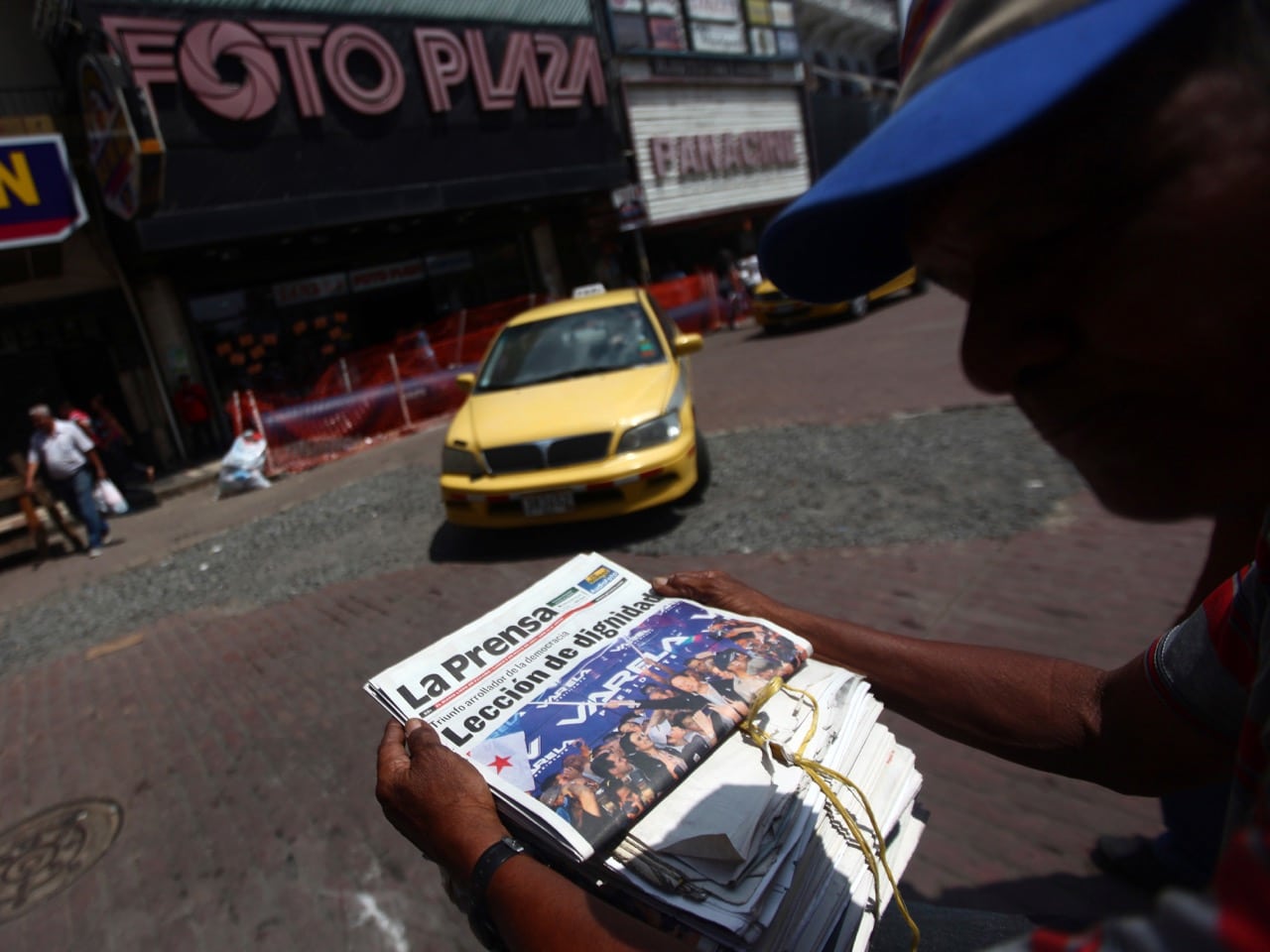(RSF/IFEX) – On 5 June 2002, RSF noted its concern about the prosecution of Victor Ramos, a cartoonist for the Panamanian daily “La Prensa”. Ramos faces up to two years in jail for “damaging the reputation” of former president Ernesto Pérez Balladares. “It is outrageous that someone who draws a cartoon can be sent to […]
(RSF/IFEX) – On 5 June 2002, RSF noted its concern about the prosecution of Victor Ramos, a cartoonist for the Panamanian daily “La Prensa”. Ramos faces up to two years in jail for “damaging the reputation” of former president Ernesto Pérez Balladares.
“It is outrageous that someone who draws a cartoon can be sent to prison,” RSF Secretary-General Robert Ménard said in a letter to Panamanian Chief Justice Adan Arnulfo Arjona, urging him to ensure the case against Ramos is dropped. Ménard said he was “shocked” by the “damage to reputation” charge, “which could be interpreted subjectively and arbitrarily.” He pointed out that criminalising what journalists say is an attack on the free flow of information, guaranteed under Article 19 of the International Covenant on Civil and Political Rights, which Panama has ratified.
Ramos is due to appear in court on 7 June to answer the charge, which arose from a cartoon published on 11 April in which the cartoonist criticised Balladares for incompetence while in power.
Another “La Prensa” cartoonist, Julio Enrique Briceño, is being sued for “harming the reputation” of former Christian Democratic Party chief Ricardo Arias Calderon in a cartoon published in December 2000 (see IFEX alerts of 5 November and 10 July 2001).
In January 2000, the United Nations special rapporteur on freedom of expression noted that “imprisonment for peacefully expressing an opinion is a clear and serious violation of a person’s human rights.” Article 11 of the Declaration of Principles on Freedom of Expression adopted by the Inter-American Commission on Human Rights says laws that punish the insulting of an official constitute an attack on freedom of expression.


